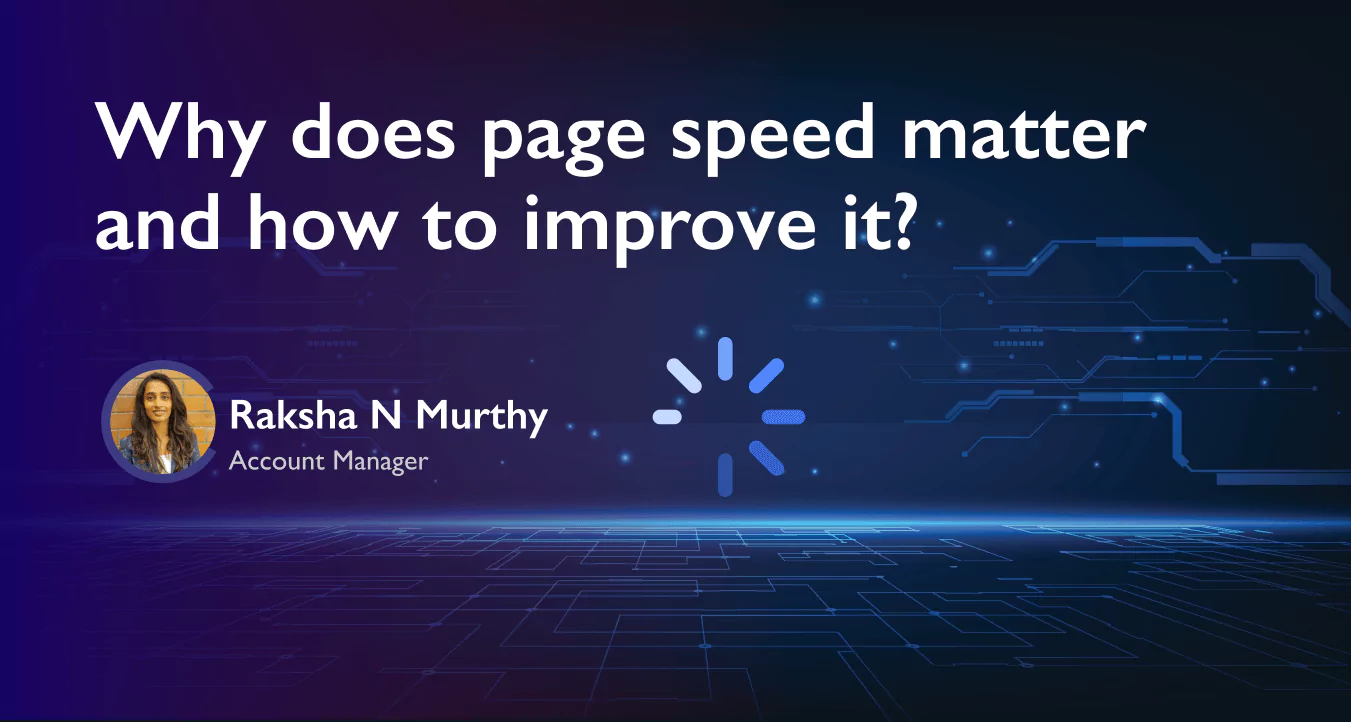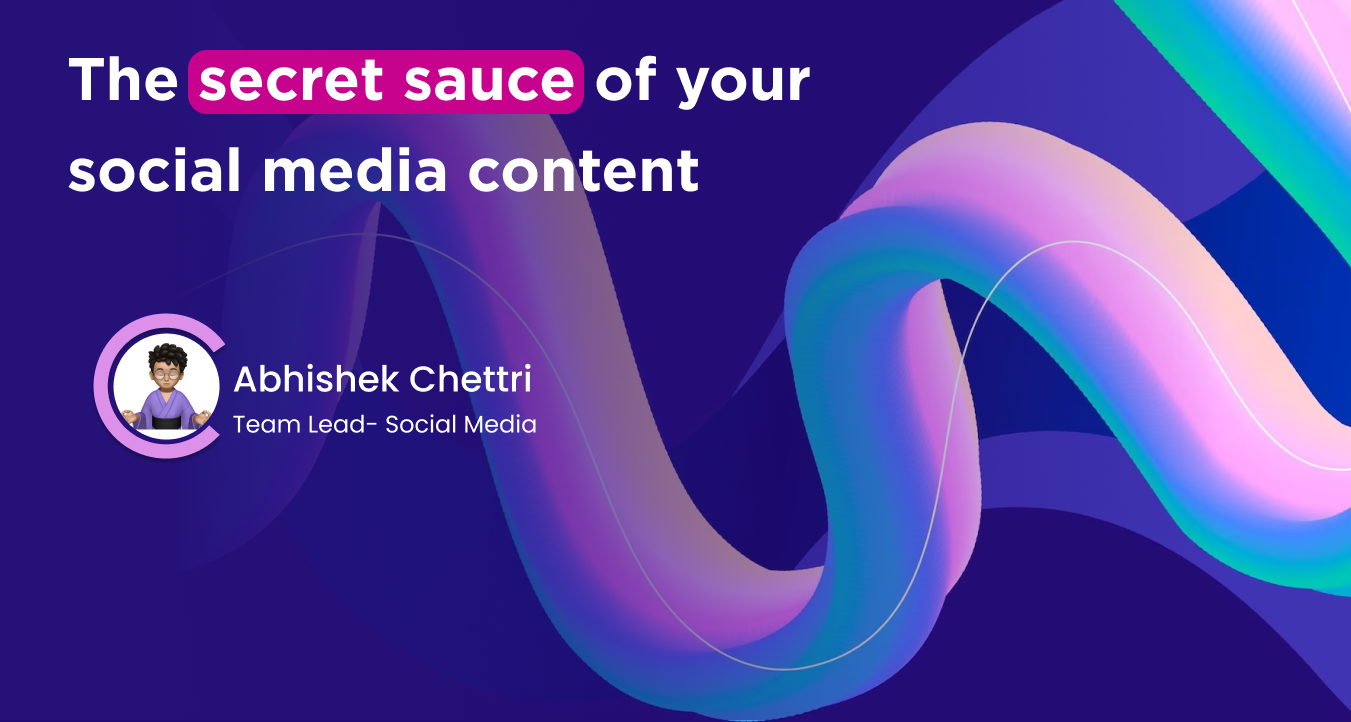First impressions matter! More so when it comes to your website—and we are not just talking about design and content. Web page speed optimization is an equally important factor for its success. A slow-loading website can harm your reputation as well as cost you money by reducing visitors and conversions.

On the other hand, a high-performing website will have a domino effect on your company's performance. It will boost the number of visitors, which will improve your sales, leads, and customers.

The first step to improving web page speed is to create it with a solid website developer that includes optimized technology right from the start. However, your job does not end there; you also need to ensure the content on your website does not slow down its performance. There are a number of factors to consider and we'll cover everything you need to know about website speed optimization and how to make your pages load faster.
Before we dive into it, let’s first talk about Page Speed-
Page speed is defined as the length of time it takes for a browser to receive the first byte from a web server or the time it takes to show all of the content on a certain page. To jot it down in less technical terms, page speed is how long it takes for the browser to receive the first batch of information right from the server.
Every page element affects the page speed, whether it is the HTML code, numerous JavaScript files, CSS that styles page elements, videos, photos, and other multimedia, and so much more. In fact, everything from the size of a component (measured in kilobytes) to the speed of the web server on which it is stored will affect page performance. Page speed is measured individually on desktop and mobile devices. Because of the technological differences between the two, desktop and mobile users will have different experiences.
Page Speed vs. Site Speed
Though they may seem similar, site speed is not the same as page speed. Site speed is the average of numerous sample pages on a website. On the other hand, page speed refers to how long a user will wait to start consuming an individual page.
Why is Page Speed Important?
When it comes to website speed optimization, there are 4 key reasons why page speed is important:
Usability: Although it may seem obvious, the quicker your pages load, the sooner a website becomes interactive. We're talking about things like the website menu, buttons, visual content, and other things that encourage users to interact with your site. Happy, returning users will result from allowing these features to become visible and usable more quickly through page speed optimization. That's all there is to it.
Users: Users are more likely to engage with your website if they can go through processes more quickly. For example, if you run an online store and each stage of the checkout process takes more than a few seconds to load, it's understandable that potential buyers will abandon the process entirely.
Any action a user takes, whether it's filling out forms or browsing between pages, is the same. Conversion rates and the number of visitors who return to your website will suffer as a result of website speed problems that limit user engagement.
Conversions: Conversions are a common goal shared by the majority of website owners. According to research, even a 0.1-second increase in website speed can boost your conversion rates, funnel progression, and consumer engagement. If visitors can't use your features quickly enough, they'll move on to the next site.
Search Engines: Google considers website speed while ranking websites (known as Search Engine Optimization, SEO).
How Can You Improve Your Website’s Speed?
There are several reasons that a website might be slow. Even professional website design agencies will sometimes create websites in a far less than optimal way. Before you begin making any modifications to your website, you should make sure you have a secure backup of it. This way, you'll be able to easily restore your site to its previous condition if any of the updates you've made break anything. ?Updraft is a WordPress plugin we suggest for backing up your site
Compress Images: Images are one of the most common causes of slowing down web pages. Uploading uncompressed images can slow down the page loading speed. Luckily, you don’t need to re-upload every image on your website. There are plugins that can compress your images for you after upload.
Switch Web Host: Your web host is one of the most important factors in the speed of your site. Not all web hosts are created equal, and switching to a new one can make a significant difference.
Update Your CMS, Plugins, and PHP Version: Making sure that all the features of your site, including your CMS and PHP version, are up to date can have an impact on website speed and help keep your site secure.
Deactivate Unused Plugins and Themes: Removing unused code and content from your website,
such as plugins, can help improve your website speed. Audit your current themes and plugins and remove any that you aren't using. This will enhance your web page loading speed as there will be less data being loaded in the background of each page. Removing unused plugins and content also makes your website safer and easier to manage. It might be more helpful to think of it in terms of removing elements that are slowing your site down.
Conclusion
Improving your website's page speed is essential for higher search rankings. Page speed insights help in understanding what can be possibly done to improve your load speed. While the score isn't too important, it is a good idea to try to get it to at least 50. However, pay more attention to the load time calculated in seconds. A good website should take around 3 seconds to load and a super-fast one should take roughly 1 second to load.

Hopefully, this has helped you understand why your website speed matters, what factors may be slowing it down, and how you may enhance it. Of course, this is just the beginning, so if you'd like our skilled web development specialists to help improve your site’s design, speed or SEO, contact us, the most trusted SEO company in Bangalore, immediately!










